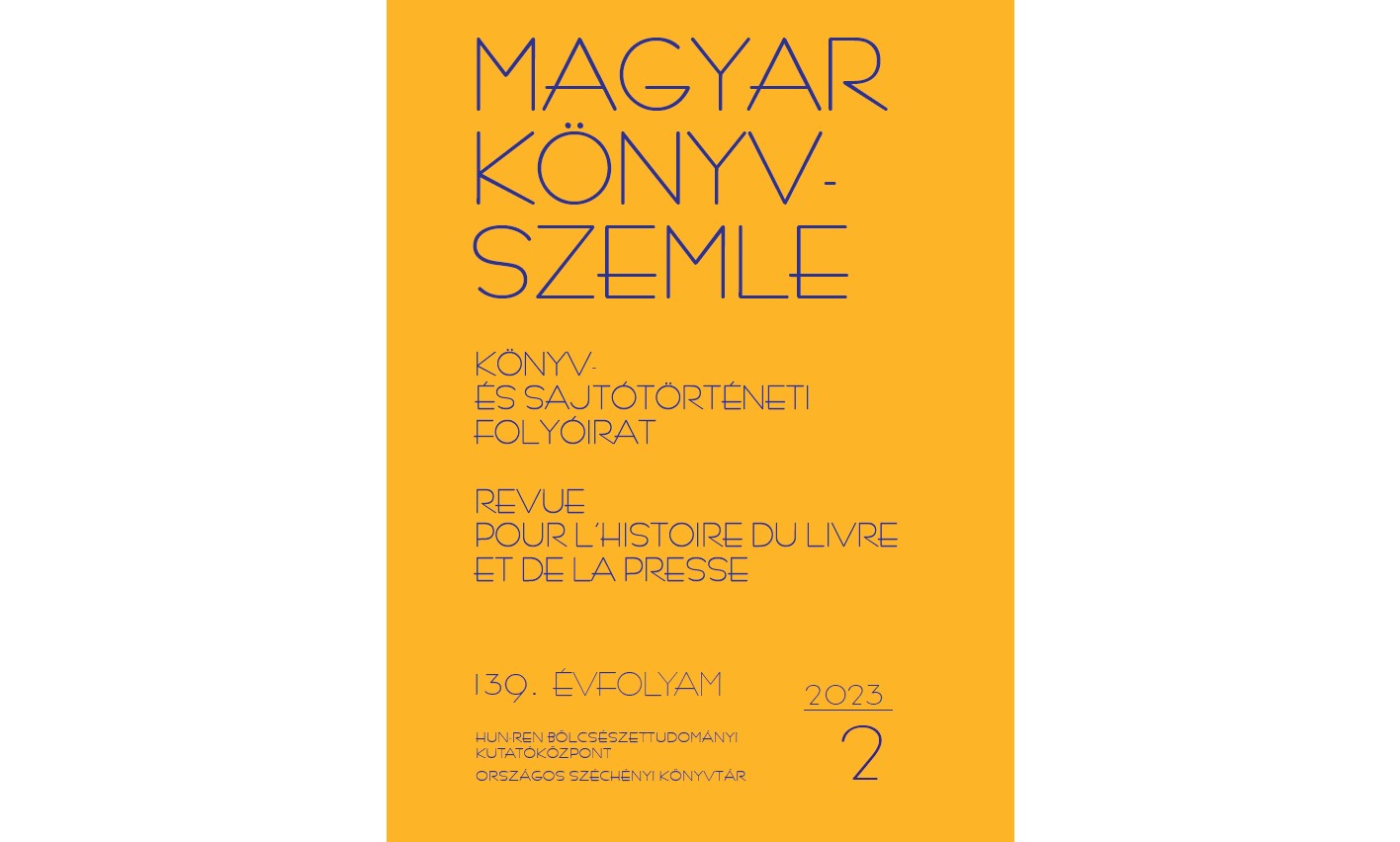Basic products at the turn of the 19th and 20th centuries, or how did a country bookshop survive in 1899?
Abstract
One of the most serious professional conflicts at the end of the 19th century in Hungary was the conflict of interests between the rural booksellers and the big publishing companies in the capital. The rules of the Hungarian Booksellers’ Association contained strict regulations on the discounts that could be applied, and if a bookshop deviated from these, it faced immediate internal investigation and, in the last resort, expulsion. By contrast, Athenaeum, Franklin, Pallas and others were not bound by the revised discount convention, which came into force in January 1894, if they distributed their products through colportage (door-to-door salesmen). The instalment series and the cheap dumping of modern
antiquarian booksellers had diverted potential customers away from the country bookshops. These lesser businesses, struggling to survive, protested regularly (and in increasingly exasperated tones), but there was no institutional solution to the complaints of the rural bookshops.
Therefore, these were forced to expand their product range and stock a wide variety of other products in addition to books to ensure the income they needed to survive. A good-humoured poetic advertisement published in 1899 by the bookseller Mihály Nagy sheds light on this colourful business offer. The goods for sale mentioned in the poem are identified and presented one by one by the author.



